
Rain buckets
We are collecting rainwater. Not because we are so ecologically minded − though we try − but because we have not had any water come through our faucets for three days.
The pump broke and they have been waiting for parts − supposedly − for about two weeks. In the meantime we've been getting from 3-8 hours of water per day. That means when the water comes, I have to drop everything to wash dishes, do some laundry, take a shower, flush the toilets, etc. Before I do any of that, I have to run all the faucets to clean out all the crud that comes through after the water has been off and then have to clean the sinks, showers, and toilets from all the dirty water. That alone takes at least an hour each day. (See previous articles in the Utilities, or lack thereof topic.)
We still haven't installed a cistern so we keep about 10 of these 5-gallon buckets filled with water at all times. We also always have 2-4 5-gallon jugs of purified water on hand. We go through that water pretty fast. Those toilets have to be flushed at least a couple of times a day.
Two nights ago, someone came and stole the electric cable that ran to the pump. Apparently when they removed the pump to repair it, the workers left the electric cable uncovered. That was all it took to get some passerby to come back during the middle of the night to steal it. I wish they had been electrocuted.
 Unfortunately, it did not rain enough today to fill the buckets so El Jefe will probably have to take some to fill them at his brother's house tonight or tomorrow. Hopefully they will have water because I've heard that in town the city water system has been rationing. Since we've been getting rain lately, the rationing may be over.
Unfortunately, it did not rain enough today to fill the buckets so El Jefe will probably have to take some to fill them at his brother's house tonight or tomorrow. Hopefully they will have water because I've heard that in town the city water system has been rationing. Since we've been getting rain lately, the rationing may be over.(Funny joke made by a neighbor: We've had some talk about the possibility of connecting to the city water system. I'm concerned about that because as bad as our water is, at least it is natural and doesn't have bacteria and .... all that other stuff that the city water has. I asked, "Isn't the city water contaminated?" A neighbor replied: "Yes, but it doesn't matter because they never have any anyway.")
You didn't even hear me mention the water situation for the past couple of weeks, did you? I've adjusted. I've learned to say a little prayer of gratitude when I turn on a faucet and water actually comes out. I can be happy with four hours of water a day, preferably if I know which four hours it is going to be. But I'll have to admit that after three days without and no indication of when the water will ever come back, I am starting to get a little grouchy.
Sigh.
Double sigh.
And a few bad words thrown in for good measure.




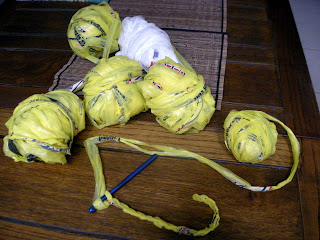













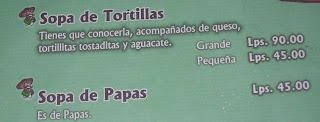

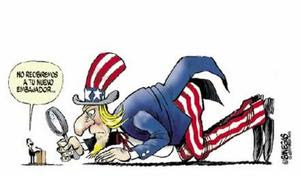





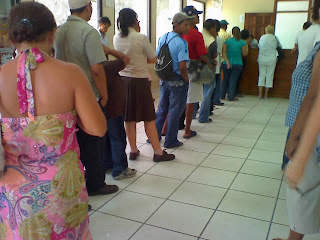


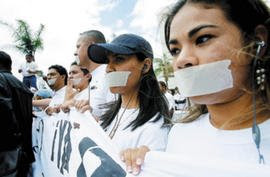



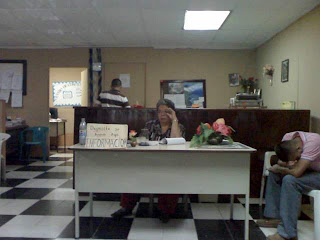











 Welcome to my Blogicito —
Welcome to my Blogicito — 






